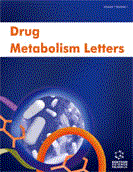Abstract
Background: Emerging evidence shows that clopidogrel is greatly affected by nonfunctioning alleles measured by P2Y12 or platelet reactivity units (PRU). Cardiac events during short in-hospital stays have been inconclusively suggested as the main causes of discrepancies. Objectives: Evaluate the impact of CYP2C19 allele *2 and allele *3 on PRU and the potential clinical consequences of such interaction. To establish a rough estimation for the safe PRU limits for short inhospital stay following PCI.
Method: A short-term experimental study was conducted with 90 patients who underwent coronary angioplasty with drug eluting stents at the Prince Sultan Cardiac Center, Buraidah. All the patients received an initial loading dose of 300 mg clopidogrel, followed by 75 mg daily. Blood samples were used for DNA extraction for cytochrome P450 (CYP) and realtime polymerase chain reaction (PCR) was used for genotyping. PRU and inhibition rate were tested by Verifynow®. All in-hospital cardiac events were recorded until patients were discharged.
Results: Genotypes 1/1, 2/2, and 1/2 were expressed by 60, 28, and two patients (67, 32, and 3%), respectively. The PRU of the female patients was significantly higher than that of the male patients was (255.6 ± 68.8 and 177.7 ± 66.6, p = 0.000, respectively). There was no significant difference in PRUs (193 ± 79 and 212 ±55.4, respectively, p = 0.349), nor inhibition (17.9 ± 18.80 and 13.88 ± 11.5, p = 0.135) in wild and resistant variants, respectively. We only reported one cardiac in-thrombosis events.
Conclusion: Genotype differences may not explain variations in the PRU of patients during short-term in-hospital stays. Although it is difficult to confirm, 117–267 units may be a safe PRU range for such patients, with emphasis on attaining higher PRU values in females.
Keywords: Allele *2, allele *3, Clopidogrel, CYP2C19, genotyping, P2Y12 reaction unit, percutaneous coronary intervention.
Graphical Abstract
 41
41














